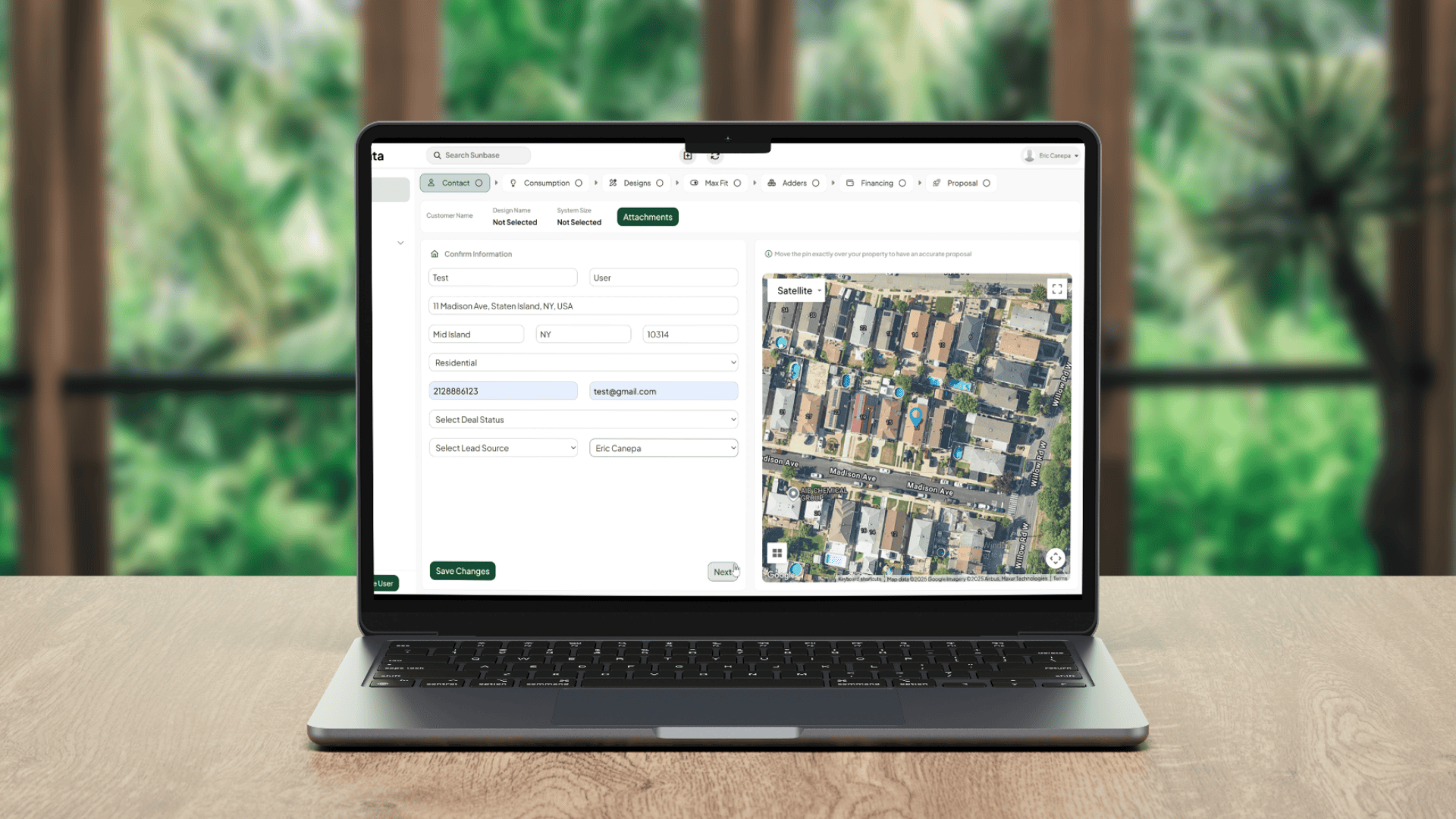May 10, 2023
In today's highly competitive corporate environment, obtaining leads is only half the battle. The true problem is efficiently following those leads and turning them into paying clients. It may be tough to keep track of potential clients and follow up with them promptly without a robust lead tracking system, resulting in missed opportunities and lost revenue.
As a result, companies of all sizes must have a robust process in place for tracking sales leads. In this blog, we'll provide you with practical advice and tactics for creating a dependable lead-tracking system that will improve your sales process and enhance your income.
What are Sales leads?
Sales leads refer to potential customers or clients who have expressed interest in a company's products or services or have demonstrated behaviors that suggest they may be interested in buying from the company.
Sales leads can be generated through various methods such as advertising, marketing campaigns, trade shows, website visits, social media interactions, referrals, and more.
What is Lead tracking?
Lead tracking is the process of capturing and managing information about potential customers who have expressed interest in a product or service. It involves gathering contact information, recording communication history, scheduling follow-ups, and monitoring progress through the sales cycle.
This can be done manually or with modern customer relationship management (CRM) software which automates many of the same tasks. By tracking and managing leads, businesses can increase their conversion rates and ensure long-term customer retention.
Different types of Sales leads
Sales leads can be categorized in various ways based on factors such as the source, quality, and level of engagement. Here are some common types of sales leads:
Inbound Leads:
These are leads that come to your business organically through your marketing efforts. They could be from your website, social media, or other forms of content marketing.
Outbound Leads:
These are leads that are generated through proactive outreach by your sales reps, such as cold calling, email campaigns, and direct mail.
Referral Leads:
These are leads that come from existing customers who refer your business to their friends, family, or colleagues.
Qualified Leads:
These are leads that have already been vetted and deemed as potential customers based on their interests, budget, and other qualifying factors.
What is Lead Tracking software?
Lead tracking software or lead management software is a tool that helps businesses keep track of their sales leads throughout the sales process. It enables businesses to manage and track leads from multiple sources, such as web forms, emails, and social media and provides a centralized platform to store and organize lead information.
With sales lead tracking software, businesses can assign leads to sales representatives, track lead engagement and progress, and set reminders for follow-ups. The software typically includes lead scoring capabilities, which allow businesses to prioritize leads based on their level of interest and engagement, and provides analytics and reporting to help businesses understand their sales performance and optimize their sales process. Overall, lead tracking software is an essential tool for businesses looking to streamline their sales process, increase efficiency, and close more deals.
What are the features of Lead Tracking software?
Sales Lead Tracking software is a tool that helps businesses efficiently manage their sales leads. It includes features such as lead capture from multiple sources, lead scoring, lead nurturing, sales automation, sales forecasting, integration with other tools, and analytics and reporting.
The system captures leads from various channels, assigns scores based on their engagement, and nurtures them with personalized content to move them toward a sale. It also automates sales processes such as lead routing and follow-up reminders and provides insights into the sales pipeline and future sales.
Integration with other tools such as CRM and marketing automation software provides a more complete view of the sales process, while analytics and reporting provide detailed insights to optimize the sales process.
What is the best way of tracking Sales leads through lead management software?
Lead management software, which provides a unified platform to handle all leads generated by a company's sales and marketing operations, might be the most effective means of monitoring sales leads. Here are some ways that a lead management system may assist you in properly tracking sales leads:
Lead Capture:
Lead management software enables businesses to capture leads from various sources such as websites, landing pages, social media platforms, and email campaigns. The software typically integrates with these sources, allowing leads to be automatically collected and stored in a centralized database. This makes it easy to manage and track all leads in one place, ensuring that no potential leads fall through the cracks.
Lead Scoring:
Lead scoring is a process that involves assigning a score to each lead based on their actions, demographics, and other variables, to determine their likelihood of converting into a customer. Lead management software often includes lead-scoring functionality that allows businesses to define scoring rules based on their sales criteria. This helps sales teams prioritize leads and focus their efforts on the most qualified and promising leads, increasing their chances of converting into customers.
Lead Nurturing:
Lead nurturing is the process of building relationships with leads through automated and personalized communication, with the goal of moving them through the sales funnel. Lead management software often includes tools for automating lead nurturing campaigns, such as sending tailored emails, messages, and other interactions based on predefined triggers or actions taken by the leads. This helps businesses keep leads engaged, build trust, and move them closer to making a purchase.
Lead Tracking:
Lead tracking is the process of monitoring the progress of leads through the sales process. Lead management software allows businesses to track the entire sales journey of each lead, from initial contact to ultimate conversion. This includes tracking interactions with leads, such as email opens, clicks, website visits, and other engagements. Lead tracking helps sales teams stay informed about each lead's status, identify potential bottlenecks in the sales process, and take necessary actions to move leads forward in the sales funnel.
Data Analytics:
Lead management software often includes data analytics and reporting tools that provide insights into the performance of lead generation efforts and the sales process. These tools allow businesses to analyze data related to lead sources, lead quality, lead conversion rates, and other key metrics. By analyzing this data, businesses can identify patterns, trends, and opportunities for improvement in their sales strategy and lead generation activities. Data analytics in lead management software can provide valuable insights for optimizing lead generation efforts, improving sales processes, and increasing overall sales effectiveness.
Integration with CRM:
You can use a reputed lead management software such as Sunbase CRM for the seamless transfer of leads and data between the lead management software and the CRM system, ensuring that all lead information is synced and updated in real time. Sales teams can have a comprehensive view of each lead's interactions and history, allowing for more effective sales and marketing efforts. The integration also promotes better communication and collaboration between sales and marketing teams, enabling them to work together towards the common goal of converting leads into customers. By ensuring that leads are effectively tracked and managed throughout the sales process, this integration helps businesses streamline their sales and marketing efforts, enhance customer relationship management, and improve overall sales performance.
Customization and Flexibility:
Lead management software typically offers customization and flexibility options to suit the unique needs and processes of different businesses. This includes the ability to create custom lead capture forms, define lead scoring rules, design personalized lead nurturing campaigns, and generate custom reports and dashboards. Customization and flexibility options allow businesses to tailor the lead management process according to their specific requirements and workflows, ensuring that leads are tracked and managed in a way that aligns with their sales strategy and goals.
Lead management software provides a comprehensive solution for businesses to effectively track and manage sales leads. It streamlines the lead capture process, enables lead scoring and nurturing, facilitates lead tracking, provides data analytics and reporting, integrates with CRM systems, and offers customization options to suit different business needs.
Best practices for tracking Sales leads
Tracking sales leads effectively requires a strategic approach that includes the use of best practices to ensure that your sales team is organized, efficient, and able to focus on the most promising leads. Here are some best practices for tracking sales leads:
Understanding the customer's needs -
Understanding customer needs is a critical aspect of tracking sales leads. To effectively track and convert leads, it's important to understand what your customers want and need, as well as what motivates them to buy.
Tracking from ads-
Sales lead tracking involves monitoring the behavior of potential customers who have interacted with your ads or other marketing materials. This can include tracking their clicks on links, form submissions, downloads, and other actions that indicate interest in your product or service.
Using CRM software-
Customer relationship management(CRM) software allows you to monitor and track leads and gather important data about them, including contact information, demographics, and interests or requirements. This information may be used to customize marketing and sales activities to the lead's demands, increasing the likelihood of turning them into paying clients.
CRM software also enables companies to trace the progress of each sales lead, from the initial contact through the final sale or rejection. This assists sales teams in prioritizing their efforts and focusing on the leads most likely to result in a sale.
Email tracking-
For email tracking to work, a tiny image or pixel must be included inside the lead's email. When the lead opens the email, the picture is loaded, and the sender receives a signal that the email has been opened.
Certain email monitoring software may also detect when links in emails are visited, allowing businesses to understand which material is most engaging to their customers.
Google Analytics-
Google Analytics is a web analytics tool for tracking and analyzing website traffic and user activity. While it is generally used to track sales leads and analyze the efficacy of marketing and sales operations, it may also be used to track website performance and enhance user experience.
Common mistakes made while keeping track of Sales leads
Tracking sales leads is an important part of any business’s sales and marketing efforts, but there are some common mistakes that businesses can make when trying to keep track of their leads. Here are some of the most common mistakes:
Not capturing enough information:
It is important to capture enough information about each lead to understand their needs and preferences. However, businesses often make the mistake of collecting too little or irrelevant information, which can hinder their ability to effectively nurture and convert the lead.
Not tracking lead behavior
Tracking the behavior of each lead, such as their website activity and engagement with marketing materials, is crucial in understanding their level of interest and intent to purchase. However, businesses often fail to track this behavior, which can result in missed opportunities to close sales.
Not prioritizing leads:
Not all leads are created equal, and some are more likely to convert than others. Businesses often make the mistake of treating all leads equally, which can result in wasted time and resources.
Not having a centralized system for tracking leads:
Having a centralized system for tracking leads, such as CRM software, is important to ensure that all team members have access to the same information about each lead. However, businesses often make the mistake of using multiple systems or spreadsheets, which can lead to confusion and errors.
Conclusion
In conclusion, effective lead tracking is crucial for businesses to optimize their sales and marketing efforts. Utilizing a comprehensive lead management solution, such as sales lead management software, can provide businesses with the necessary tools to capture important information about leads, track their behavior, and measure the effectiveness of their sales and marketing strategies.
Additionally, integrating email tracking and Google Analytics can further enhance lead-tracking capabilities. To maximize the effectiveness of lead-tracking efforts, businesses should prioritize leads based on lead scoring, implement a centralized system for tracking leads, and regularly analyze and optimize their sales and marketing strategies. By doing so, businesses can increase their conversion rates, improve customer relationships, and ultimately achieve greater success in their sales and marketing efforts.
I agree to receive marketing messaging from Sunbase at the phone number provided above. I understand data rates will apply, and can reply STOP to OPT OUT.











